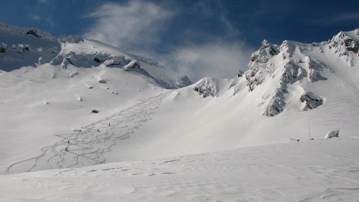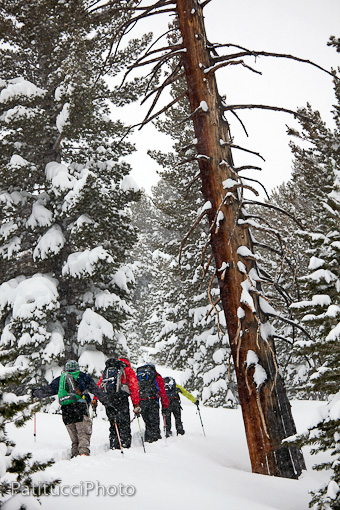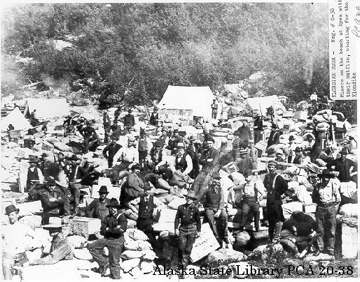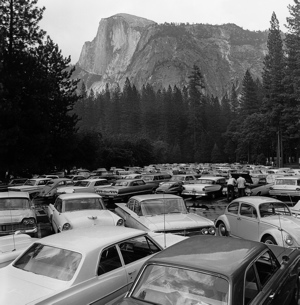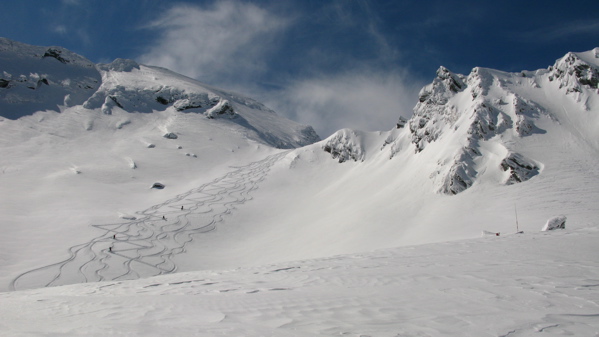
Mining the Fagaras Range, Transylvanian Alps, Romania. Photo by mountain guide Iulian Cozma.
During a lull in last week’s storm we took it upon ourselves to hike up a mountain—and by hike up a mountain I mean put traction devices on our alpine touring skis and set out from our cars in a generally, then quite seriously, uphill direction for several hours, breaking trail through a thick, waist-deep accumulation of el-niño caliber snowdump, in exchange for a few minutes’ dreamlike turns on the way back down. We weren’t sure what to expect. We were the first-ever travelers to lay tracks in that newmade landscape.
